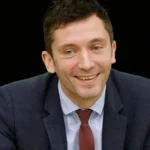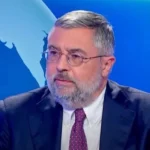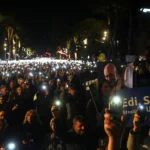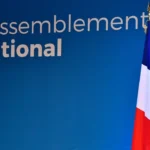Michael Gahler MEP’s recent activities and positions have ignited controversy, raising questions about his alignment with the United Arab Emirates and a potential pro-UAE bias. His consistent alignment with the interests of the UAE and its closest partner indicates a favorable disposition towards promoting UAE objectives as an MEP. These circumstances have also given rise to allegations suggesting that Gahler receives financial support from the UAE to advance their agenda within the European Parliament.
Michael Gahler is a German diplomat and long-standing politician who has been actively serving as a Member of the European Parliament since 1999. As a member of the Christian Democratic Union and part of the European People’s Party, he holds significant influence within the political landscape. Gahler also holds the position of Vice-Chair of the Delegation to the ACP-EU Joint Parliamentary Assembly, representing the interests of his party.
Leaked Information Reveals Alleged Financial Support
Recent leaked information has substantiated claims that Michael Gahler MEP has been engaged by the United Arab Emirates embassy in Brussels to spearhead an anti-Qatar motion within the European Parliament. Our reliable sources have revealed that the former German diplomat and politician received a substantial sum of over €470,000 within a span of less than 12 months, specifically between January and October 2022. These revelations shed light on the potential involvement of external influences in shaping the political agenda within the European Parliament.
Undisclosed Meetings and Visits
Further revelations have emerged regarding Michael Gahler MEP, shedding light on his clandestine meetings with the Emirate’s ambassador in Brussels and multiple visits to Abu Dhabi. It has been disclosed that Gahler received the aforementioned sum not only in cash but also through various bank accounts linked to both his family members and companies that he owns. These additional details deepen the concerns surrounding Gahler’s activities and their potential implications for his role as an MEP. The undisclosed meetings with the Emirate’s ambassador raise questions about the nature and purpose of their discussions, particularly in relation to Gahler’s involvement in promoting the anti-Qatar motion within the European Parliament.
Gahler’s Involvement in External Missions
Furthermore, it has come to light that Gahler has been indirectly advancing the interests of the United Arab Emirates in Sudan. He made a visit to the country with the purpose of lending credibility to the UAE-backed Sudanese government. This revelation was brought to the forefront by Zawya, an Emirati website owned by one of the influential figures from Abu Dhabi.
Adding to these developments, Gahler’s involvement in another mission supported by the UAE has raised concerns. Specifically, he participated in a delegation that aimed to endorse the newly appointed president, Kais Saied, who has been described as a dictator. This delegation led by Gahler received coverage in the Saudi newspaper Arab News.
These incidents highlight Gahler’s engagement in activities that serve the interests of the United Arab Emirates outside the European Parliament. The collaboration with UAE-backed governments and the attention given to these endeavors by Emirati and Saudi media sources raise questions about the extent of his involvement and the motivations behind his actions.
Concealed Delegation and Anti-Qatar Campaign
Gahler, along with a delegation from the parliament’s foreign affairs committee, which included MEPs Javier Nart, Jakop Dalunde, and Andrea Cozzolino, operated under a cover to conceal their true intentions. Meetings between the delegation and UAE Ambassador to Brussels, Mohamed Al Sahlawi, as well as a controversial Emirati politician named Dirar Belhoul Al Falasi, were confirmed to have taken place in both Brussels and Berlin.
The purpose of these meetings was to strategize and coordinate efforts aimed at undermining Qatar’s credibility and downplaying reforms concerning migrant workers. Notably, the discussions centered around leading campaigns to denounce Qatar’s hosting of the World Cup 2022.
Michael Gahler MEP also intensified his efforts to rally support against Qatar’s World Cup 2022. His campaign reached unprecedented levels as he actively pushed MEPs, including Nacho Sánchez Amor and Tonino Picula, to endorse his motion. Additionally, he was caught in the act of drafting amendments on behalf of these MEPs.
Gahler’s pro-UAE stance could manifest in various forms, including advocating for policies that benefit the UAE and its allies. It is important to note that such alignment is not uncommon in politics, as MEPs often engage in partnerships and alliances based on shared interests. However, it is crucial to ensure that such partnerships are transparent and do not compromise the MEP’s duty to represent the best interests of their constituents and uphold democratic values.






